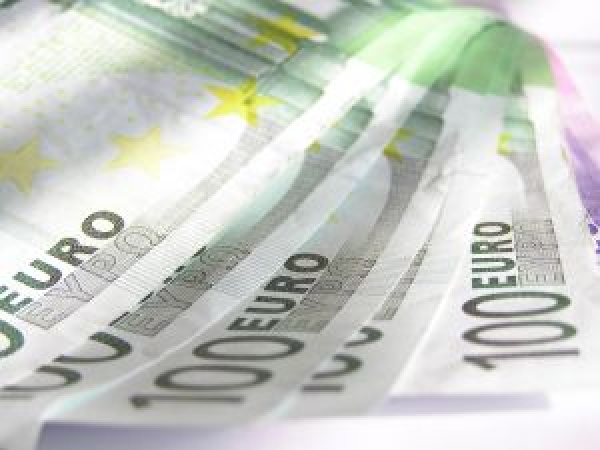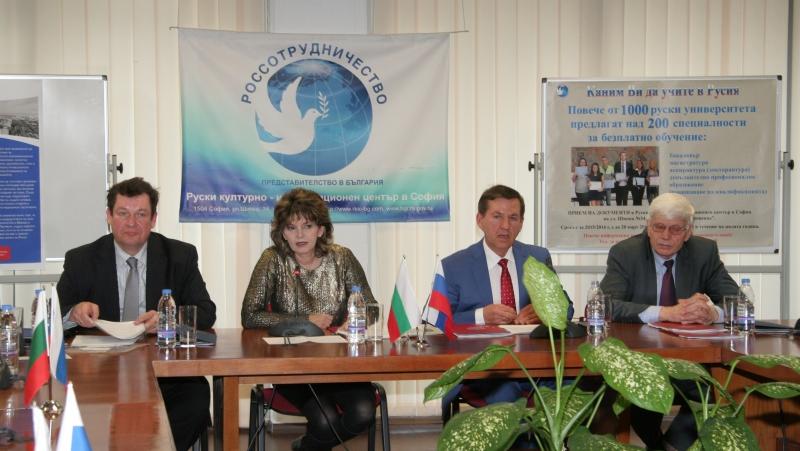/ world today news/ “Financial Times” writes that “an official from the EU stated that in all the discussions at the leaders’ summit in Brussels a few days ago there was a “shadow of China“. Although Beijing was not included in the agenda of the meeting. They speculated whether Xi Jinping could bring Putin and Zelensky to the negotiating table. The fact is that information has already arrived from Beijing that Brussels has been offered to join the “China peace plan” for a way out of the conflict in Ukraine.
And there was a commotion. Four of the so-called top EU leaders are preparing to travel in the coming weeks to Beijing for a meeting with Xi Jinping. The effect of the deal between Iran and Saudi Arabia and the visit of the leader of the Middle East to Moscow is striking. The conclusions all over the world are that China has asserted its influence in international relations and presents the new face of Chinese diplomacy. One species has patiently and consistently entered the top league of international diplomacy. But after 4 decades of achieving economic growth that challenges the US’s No. 1 position.
The world is witnessing that the EU is changing its attitude towards China. It’s not that he doesn’t share the American line of driving a wedge between Russia and China, who have declared “strategic cooperation without borders,” but concerns about a looming endless conflict in Ukraine and statements from Putin and Xi Jinping after their meeting in Moscow are prompting European leaders to express support for Beijing’s peace plan. Queuing up to meet with Xi Jinping are Spanish Prime Minister Pedro Sanchez, French President Emmanuel Macron, EU foreign policy chief Josep Borrell, EC chief Ursula von der Leyen. In fact, Ursula von der Leyen has offered Macron a joint visit to Beijing. For his part, he stated that a day earlier he met with Chancellor Olaf Scholz and “we share a common vision on the subject”. Macron and Ursula will travel together on April 4 to Beijing. She will be in China for the first time as EC President. “Politico” wrote that “European leaders suddenly began to crush each other to get to China.”
Sanchez announced that he will visit Beijing next week to “discuss Beijing’s framework for peace between Russia and Ukraine.” He simply wanted to familiarize himself “first hand” with the peace plan for negotiations. He said something about sending a message to Kiev to “create conditions for negotiations”. But he categorically emphasized to journalists in Brussels that “China is a global factor and we must listen to its voice”. The addition is “to see if together we can end this war and restore the territorial integrity of Ukraine.” Well, that’s where the dog is buried, but that’s exactly what Xi Jinping didn’t say to us in Moscow. But Atlantic leaders criticized China’s 12-point plan for peace in Ukraine. They accused China of “secretly supporting Russia”. And here Sanchez is the first in Europe to demonstrate a change in attitude towards Beijing’s positions. It should not be forgotten that Spain becomes the President of the European Union from July and this position of Sanchez is likely to pay dividends for him in occupying this leading position in Europe.
However, there is a nuance in the change of attitude towards Beijing. Macron spoke of “cooperation with China to put pressure on Russia”. There was a common European vision for maximum engagement with China, but “to stop the conflict while respecting territorial sovereignty and international law.” As they write in “Politico” – “China is not perfect, but one day it may be necessary” This is a thesis of today’s date of many European leaders. At a time when Erdoğan’s spokesman, Callan, on his return from a visit to the US stated that “there is a strong pro-war climate in Washington, especially in the context of the Russian-Ukrainian war. They want war, they want the war to be prolonged, and unfortunately it will continue.” Callen is right that “the war is intensifying and this is a great loss not only for Ukraine, but also for the region and the world”.
The period after the Putin/Xi Jinping meeting is a time for analysis and scrutiny of every word and gesture of the two geopolitical leaders. Leaders who not only challenge the unipolar world order established after the end of the Cold War, but also demonstrate their alternative point of view on the world order. Xi Jinping’s words about “now there are changes that have not happened in 100 years, and when we are together, we will drive these changes” are memorable. This is no good for the US. It also does not suit them that Brazilian President Lula da Silva only a day after his return from Washington allowed 2 warships of Iran to arrive at the port of Rio de Janeiro, and these days Lula will be in China and propose his idea of a “peace club “. The goal is a mediating role to end the conflict in Ukraine. His flowery expression “it’s time for China to get its hands dirty” is only a call to support the idea of creating a group of mediator countries to “sit down with Ukraine and Russia to try to find peace”. The US has already rejected Turkey and China as “broker states”, but who knows what new winds will blow in Washington. Blinken has been walking rather sullenly lately and doesn’t seem to have any reason to smile. It is hardly a pleasure to read in the “Financial Times” an interview with the Brazilian foreign minister who says that “the president ie Lula has said many times that he has heard a lot about war but very little about peace. He is interested in peace talks.” It is debatable whether Xi Jinping’s visit to Moscow or his role as a mediator in the restoration of diplomatic relations between Iran and Saudi Arabia, which undoubtedly also led to the renewal of diplomatic relations between Damascus and Riyadh, are at the basis of conclusions , that “visiting Moscow made the world safer”. But it is a fact that Borel, a little timidly, but still clearly joined the positive statement about China”. Regardless of the fact that Blinken defined the meeting in Moscow as “irresponsibility on the part of Xi”. In Washington they use the phrase “marriage of convenience” and Berlin talks about “Russia is a gas station with discounts for China”. Yes, but Borrell will also travel to Beijing and according to the Financial Times he said that “Xi’s visit to Moscow is made the world safer.” The ability to use nuclear weapons was reduced, and that was China’s doing. This is actually one of the 12 points of China’s peace plan. Borel even allowed himself, miraculously, to oppose the USA with a statement that “Beijing has not crossed any line by providing weapons to Russia.” He had only offered “economic support”. The narrative that Russia is becoming China’s junior partner, that it is becoming a “raw appendage of Beijing”, that it will play a “secondary role” is widely popularized in the West, mainly in the Anglo-Saxon world. Except that none other than the former prime minister and foreign minister of France, de Villepin, says that “there is a rift in the international community, between the West and the rest of the world.” This was already a conflict between two worlds, between two civilizations that don’t trust each other.” And they don’t, because the Anglo-Saxon world already lied about Iraq with invented weapons of mass destruction and started a war there, and now it is looking for support for Ukraine. Then what kind of isolation of Russia is claimed? That’s probably why Borel is already saying that “why shouldn’t China buy Russian oil at low prices, which is profitable and good business for them?” This is how they will attract Beijing to their side and save the old Europe, which chose geopolitics over economic benefits and provoked the mass protests in France and strikes in Germany? A principled and balanced attitude is not the first concern of the EU, but the consequences are deplorable. They brought Beijing together with Moscow, and now they will be divided. However, the changes are different. Putin and Xi Jinping presented them clearly in Moscow. Who is younger, who is elder brother is the work of the Russians and Chinese themselves. They do the math, and if the hoe comes, it should be their business. The other is from the evil one, and he has gone to great lengths to bring the world to this state of fear of World War III. The question is whether it will help to avoid internal wars and the overthrow of a series of rulers. The answers are coming.
#Europe #East

What are the potential consequences for Europe if it continues to strengthen its ties with China amid the geopolitical tension caused by the Russia-Ukraine conflict?
Guest 1: What are the potential implications of Europe’s changing attitude towards China in the context of the ongoing conflict in Ukraine and its potential relationship with Russia, as well as the region’s broader geopolitical landscape?
Guest 2: Given the recent high-level meetings between Chinese and Russian leaders, how do you see the role of China in the global order and its impact on existing power dynamics? Additionally, what do you think are the potential risks and benefits of this newfound alliance for both parties?
Guest 1: The US has been critical of China’s 12-point plan for peace in Ukraine, accusing it of secretly supporting Russia. How should we interpret China’s intentions in this regard, and what are the possible motivations behind its proposed peace initiatives?
Guest 2: With Brazilian President Lula da Silva’s recent comments on the importance of peace talks and Turkey’s efforts to mediate between Russia and Ukraine, how might South America and the Middle East fit into this shifting geopolitical landscape, and what challenges do they face in navigating these complex relationships?
Guest 1: As European leaders rush to meet with Xi Jinping, there are concerns about the potential for economic and political fallout from aligning too closely with China. How should Europe balance its interests and values in its engagement with Beijing?
Guest 2: The United States has been trying to isolate Russia economically, while China continues to buy Russian oil at discounted prices. What does this say about the nature of the Sino-Russian relationship, and how might it impact global energy markets and the global economy overall?
Guest 1: what are the broader implications of the growing rift between the West and the rest of the world, particularly in regards to the role of China and Russia? How might this play out in areas such as international trade, security, and dialogue on shared concerns like climate change?

